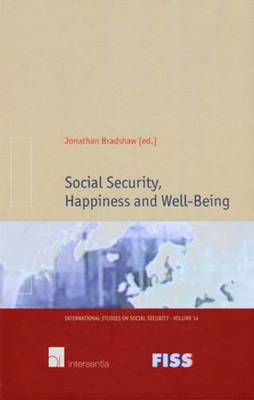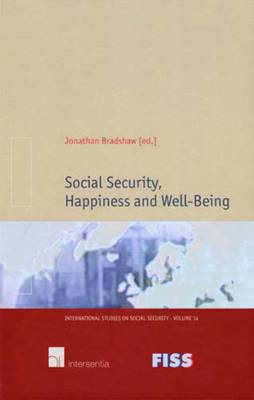
- Retrait gratuit dans votre magasin Club
- 7.000.000 titres dans notre catalogue
- Payer en toute sécurité
- Toujours un magasin près de chez vous
- Retrait gratuit dans votre magasin Club
- 7.000.0000 titres dans notre catalogue
- Payer en toute sécurité
- Toujours un magasin près de chez vous
Description
Among the many explicit objectives of social security systems, there is the general aspiration to improve welfare, well-being or even the happiness of populations. Such grandiose objectives are rarely made explicit. With evidence that more economic growth does not necessarily equate with higher levels of well-being in society, there has developed an interest in the contribution to welfare that might be made by distribution and redistribution.
Social security is the major vehicle for redistributing financial resources in society. This volume collects together essays which reflect both theoretically and empirically on the relationship between happiness and social security. This book addresses the following questions:- Does welfare state effort enhance happiness?
- Why might social security enhance happiness?
- How might it be reformed to make more impact on well-being?
- How does income and health impact on well-being?
- How does income improve the well-being of widows?
- Does well-being influence employment probabilities?
- How is the well-being of children related to other factors in society? Contributors
Signe Hald Andersen, Eric Bonsang, Jonathan Bradshaw, Hartley Dean, Angela Fontes, Karen C. Holden, Bill Jordan, Jeungkun Kim, Stijn Rottiers, Kolbeinn Stefansson.
About this book:
'[...] a fascinating edited collection which seeks to answer a vital question. [It] provides some extremely thought-provoking contributions to the debate on social security and well-being.'
Karen Rowlingson in The Journal of Social Policy 2010 (333).
Spécifications
Parties prenantes
- Auteur(s) :
- Editeur:
Contenu
- Nombre de pages :
- 144
- Langue:
- Anglais
- Collection :
- Tome:
- n° 14
Caractéristiques
- EAN:
- 9789050958158
- Date de parution :
- 15-10-08
- Format:
- Livre relié
- Format numérique:
- Genaaid
- Dimensions :
- 165 mm x 246 mm
- Poids :
- 435 g

Les avis
Nous publions uniquement les avis qui respectent les conditions requises. Consultez nos conditions pour les avis.






